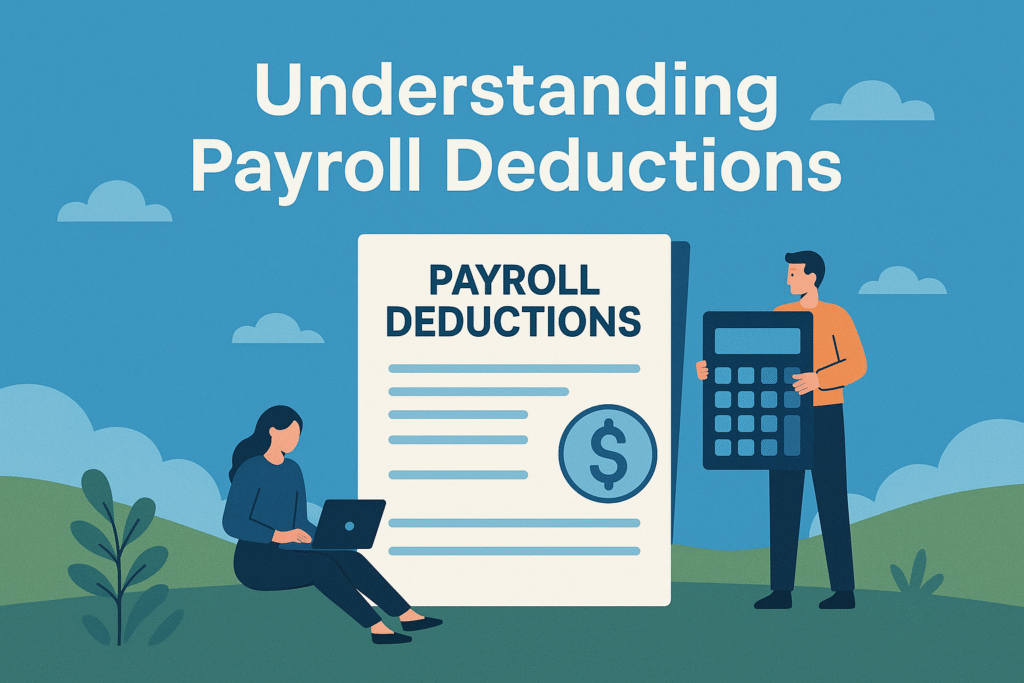Paychecks often come with numbers that can seem confusing—gross pay, taxes withheld, deductions, and finally, the amount you actually take home. Understanding payroll deductions is key to knowing where your money goes each pay period and how it affects your financial health. While it’s normal to feel a bit puzzled by all the numbers on your pay stub, breaking down the deductions helps you take control of your finances. If you’re dealing with financial stress, debt relief programs might be a helpful resource to improve your situation. Let’s explore what payroll deductions really are and why they matter.
What Are Payroll Deductions?
Payroll deductions are amounts subtracted from your gross pay by your employer before you receive your paycheck. Employers do this to cover required taxes, benefits, and sometimes other voluntary contributions.
The money withheld ensures that taxes like Social Security, Medicare, and federal and state income tax get paid on time. Beyond taxes, deductions can include payments for retirement plans, health insurance, union dues, or even charitable contributions.
Gross Pay vs. Net Pay: What’s the Difference?
Your gross pay is the total amount you earn before any deductions. It’s the number you see in your employment contract or when you discuss your salary.
Net pay, also called take-home pay, is what actually lands in your bank account after all deductions. It’s important to focus on net pay because that’s what you have available for living expenses, savings, and debt payments.
Knowing the difference helps you budget realistically and avoid surprises about your actual income.
Mandatory Payroll Deductions: Taxes and Government Contributions
The biggest chunk of payroll deductions usually goes to taxes. Employers are required to withhold:
- Federal Income Tax:This varies based on your income and filing status.
- State and Local Taxes:Not everyone pays these, but where applicable, they reduce your paycheck.
- Social Security Tax:A fixed percentage of your income goes toward this program, which supports retirement and disability benefits.
- Medicare Tax:This supports healthcare coverage for seniors and certain disabled individuals.
These taxes fund essential government services, but they also significantly reduce your take-home pay.
Voluntary Payroll Deductions: Benefits and Savings
Aside from taxes, many employees choose to have money deducted from their paychecks for benefits or savings programs. Common examples include:
- Health Insurance Premiums:Paying premiums through payroll deductions often offers better rates and convenience.
- Retirement Contributions:Many employers offer 401(k) or similar plans that deduct money pre-tax, helping you save for the future while lowering taxable income.
- Flexible Spending Accounts (FSA):These accounts let you set aside pre-tax dollars for medical or dependent care expenses.
- Life Insurance and Disability Insurance:Optional coverages can be paid through deductions.
While these reduce your take-home pay, they provide valuable protections and savings benefits.
How Payroll Deductions Affect Your Budget and Debt
Understanding payroll deductions is especially important if you’re working to manage debt or save money. The paycheck you count on is your net income, and budgeting based on gross pay can lead to overspending.
If debt is a concern, knowing your true income helps you allocate money wisely and avoid shortfalls. Debt relief programs often stress the importance of realistic budgeting, which starts with understanding what money you actually have in hand.
Review Your Pay Stub Regularly
Pay stubs provide a detailed breakdown of earnings and deductions. Taking time to review them can help you spot errors, understand changes, and plan better.
Look for unexpected deductions or changes in tax withholding. For example, a recent life event like marriage or a new child might change your tax status, affecting your paycheck.
If something looks off, contact your HR or payroll department to get it sorted quickly.
Tips to Maximize Your Take-Home Pay
While you can’t control mandatory taxes, there are ways to manage other deductions and increase your net pay:
- Adjust Withholding:If you consistently get a big tax refund, consider adjusting your withholding to increase your monthly take-home pay.
- Review Benefits:Choose benefit plans that match your needs without overpaying.
- Contribute Wisely:Maximize employer matching on retirement plans but balance contributions with current cash flow needs.
These actions can optimize your paycheck and financial well-being.
In Conclusion: Knowledge Is Power
Understanding payroll deductions is about more than just numbers—it’s about empowering yourself to make smarter financial decisions. Knowing the difference between gross and net pay, the types of deductions, and how they impact your budget can reduce stress and improve your money management.
If debt feels overwhelming, combining this knowledge with the support of debt relief programs can help you regain control. With awareness and planning, you can make your paycheck work harder for you—today and into the future.

